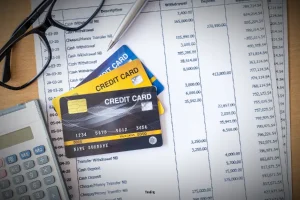Tradelines and How They Affect Your Credit Score
When it comes to sound financial management, maintaining a good credit score is a key component. A good credit score will not only improve your access to borrowing but will do so at more favorable rates, allowing you to repay your debts sooner and with greater ease, enabling you to increase your savings and overall wealth.
A term commonly used in the credit industry is ‘tradeline’ and as a creditor, it is important to know what this means and how it applies to you. This article takes a closer look at tradelines and how they can affect your credit score.
What is a Tradeline?
A tradeline is a record of a borrower’s credit activity that appears on their credit report and is created when they are approved for a particular loan. This includes mortgages, credit cards, car loans, and other types of credit that can impact their individual credit history and score.
Credit reporting agencies use tradelines to calculate an individual’s credit score, assigning different weights to the types of borrowing the individual has on their account. This information is used to create a picture of their borrowing status, factoring in things like their ability to repay each loan, the amount of debt, and their overall creditworthiness.
In some cases, a credit card user with good credit history may add someone onto their card to help them improve their credit score. This is known as an authorized user (AU) tradeline and several AU companies exist which sell tradelines to help credits improve their credit history. You can find out more by reading each superior tradelines review here.
Information in Tradelines
Tradelines are not just for the benefit of lenders as they also provide helpful information to borrowers about the state of their credit health so it is advisable to check your credit report to ensure your tradeline information is correct. The following information is typically included in each trade line:
- Name and address of the lender and borrower
- Account number
- Type of account
- Opening and closing date of account
- Credit limit or loan amount.
- Current balance
- Minimum payment
- Payment history
- Account status and delinquency details
Being aware of the tradelines on your credit report can help you get a better idea of your financial health and ensure all credit reporting is accurate.
Tradelines and Your Credit Score
The information in your credit report will affect your overall credit score. Positive tradelines will help you to build good credit, while negative ones will lower your score.
Credit scoring models, like FICO, consider factors such as payment history, amounts owed, credit history length, credit mix, and new credit.
Accounts in good standing are those which make consistent payments on installment loans and show responsible credit card use, positively impacting the borrower’s credit. Accounts in bad standing involve unpaid debts or late payments, and will negatively impact their credit score.
Lenders will use this information to assess an individual’s creditworthiness and determine whether they are a reliable borrower or not. This will impact their ability to secure lending and influence the terms such as amounts and interest rates they will qualify for.
Understanding and managing your tradelines responsibilities can help you improve your creditworthiness and overall financial well-being.








